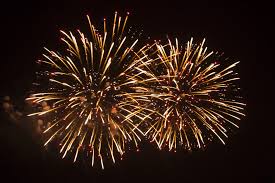HARRISBURG – The Wolf Administration is urging caution this week, as millions of Pennsylvanians fire up their grills, dust off lawn chairs and stock up on fireworks in preparation for Fourth of July celebrations.
“Fireworks are not toys; they are inherently dangerous, and in most cases, their use should be left to professionals,” said State Fire Commissioner Bruce Trego.
“We want people to know that there are simple things we can all keep in mind to make sure our celebrations are not only memorable and safe, regardless of whether they feature professionally displayed fireworks, or consumer displayed fireworks.”
The Consumer Product Safety Commission reported that in 2017, there were eight nonprofessional fireworks-related deaths and an estimated 12,900 patients were treated for fireworks injuries in hospital emergency rooms, nationwide.
More than half of the injuries reported were burns, with the head, eyes, face or ears, being the most frequently impacted part of the body. Thirty-six percent of those injuries involved children under the age of 15.
Trego gave the following suggestions to minimize their danger, should one choose not to leave fireworks displays up to the professionals:
- Whether attending a professional display, or using consumer fireworks, always remain at a safe distance from the ignition location.
- Never point or throw fireworks at another person.
- Never allow children to play with fireworks, even sparklers, which can burn at temperatures of at least 1,200 degrees.
- Never use fireworks after consuming alcohol, or other medications or substances that can impair judgment or the ability to react quickly to an emergency.
- Never pick up or try to relight fireworks that have not fully ignited.
- Only allow adults to light fireworks one at a time, then quickly back away.
- Keep a bucket of water or garden hose handy in case of a fire.
- After the fireworks have burned, fully douse them with water before disposing of them to prevent trash fires.
“In addition to causing frequent injuries around the Fourth of July holiday, fires or other property damage from fireworks can cost you when it comes to your homeowners’ insurance,” Insurance Commissioner Jessica Altman said.
“Property damage often means consumers must file a claim. If a claim results in the insurer making a monetary payment, the homeowners’ premiums could rise as a result.
“In addition, homeowners are responsible for paying any deductible on the policy out-of-pocket.”
Altman also noted not all homeowners’ insurance policies are alike, so consumers could even run the risk of having a claim denied.
National Fire Protection Association (NFPA) statistics show fireworks start more than 18,500 fires per year and cause an average of $43 million in direct property damage.
“With a new law that took effect in 2018 allowing individual consumers to legally buy and use more types of fireworks, it is critical Pennsylvanians follow the precautions in this law to lessen the chance of causing a fire,” Altman said.
Under state law, Pennsylvanians who are at least 18 years old may purchase and use Class C, otherwise known as consumer-grade, fireworks. Certain restrictions apply, including:
- They cannot be ignited or discharged on public or private property without the express permission of the property owner.
- They cannot be discharged from within a motor vehicle or building.
- They cannot be discharged toward a motor vehicle or building.
- They cannot be discharged within 150 feet of an occupied structure, whether or not a person is actually present.
- They cannot be discharged while the person is under the influence of alcohol, a controlled substance, or another drug.
Local ordinances may include additional restrictions, so always check with your municipality before purchasing or using Class C fireworks.




